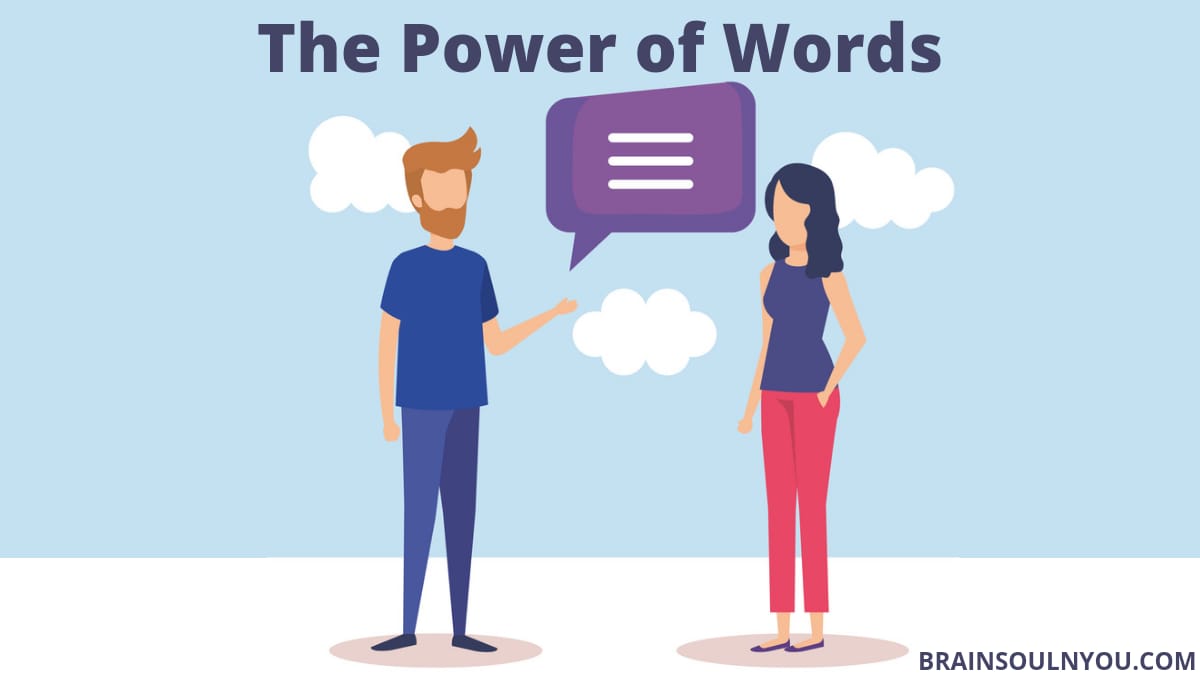The world’s greatest leaders and progressive thinkers have always used the power of words to transform our emotions to help inspire others to follow their vision and make actionable changes. From Winston Churchill’s focus on “The Finest Hour” to Martin Luther King, Jr.’s depiction of “Dreams,” it’s clear that words shape our entire existence. But what about your own ability to use words internally to change your lives for the better – words that will ignite change, inspire action, and improve the quality of your lives.
Dr. Andrew Newberg, the author of “Words Can Change Your Brain” says, “language shapes your behavior and every word you use is imbued with many individual meanings. The right words spoken in the right way can bring you love, money, and respect, while the wrong words or even the right words spoken in the wrong way can lead a nation to war. If you want to achieve your goals and make your dreams come true, you must organize your speeches carefully.”
Our words are a vehicle to express and share your experiences with others, but may not you feel the far-reaching effects of the words that you use daily.
How you talk to yourself directly affects how you experience things in life. If your inner self-talk is negative, chances are your outer experiences will be negative as well.
Why the Words Matter?
There is power in words. They can destroy and create. Sometimes one word can change everything. Changing just one keyword in a person’s vocabulary can affect the way a person feels – and how that person behaves. Just by changing your habitual vocabulary—the words you use to describe persistent feelings—you can immediately change the way you think, how you feel, and how you live.
Our words have the unique power to quickly take root in the fertile soil of a child’s soul. Kind words are like honey, sweet to the mind and healthy to the body.” Life can be changed forever with a phrase, an uplifting word, or an act of kindness.
What’s in your habitual vocabulary?
According to Compton’s Encyclopedia, there are about 500,000 words in the English language. Nevertheless, the working vocabulary of the average person comprises only 2,000 – 0.5% of the entire language. So how many words make up your habitual vocabulary? For most people, this averages around 200–300 words. (In contrast, John Milton’s writings used about 17,000 words, and William Shakespeare used 24,000, 5,000 of which he used only once.) Those 500. Out of 8,000 words, about 3,000 words are used to describe feelings – two-thirds of which are used to describe. negative feelings.
With all these readily available ways of expressing our feelings and thoughts, why are we so comfortable with slang terminology? Our brains are working faster, processing information and working to become more efficient. As a result, we resort to using the same terminology over and over again. In our pursuit of efficiency, we often take shortcuts that leave us emotionally short.
Change Your Words, Change Your Life
Words are made up of vibration and sound. It is these vibrations that create the reality around us. words are makers; Creator of our universe, our life, our reality. An idea can never become a reality without words.
So what can we learn from this? If our words and thoughts are the tools with which we create our reality, then surely they are our most powerful tools yet? Surely we should only choose the best words to create our best reality?
A Small but Important Change
Can it really be that easy? Can we change our feelings and the quality of our lives by changing the words we habitually use to describe our feelings?
If you are wondering how to change your life in the easiest way possible, start with one word. Change the one word that will change the way you perceive “negative”. Changing your emotional patterns is the key to shaping your decisions, actions, and life. This way you make a choice rather than a habitual reaction.
Transformational vocabulary gives you the power to change your experiences in life by reducing the intensity of negative emotions to the point where they no longer control you. It can be used to take positive experiences and take them to even greater heights of joy.
Make your inner vocabulary more positive, and you’ll be amazed at the positive outward experiences you’ll find. Use your words Consciously to improve and change your life. That’s the power of words.
Read, also Kaizen Technique: Change for the Better, The Power Of Positive Affirmations, The Power of Listening, Positive Thoughts, The Tremendous Power of Autosuggestion
Saurabh Goel
Saurabh Goel is the founder of Brain Soul & You. He is an Entrepreneur, Author, Brain Performance coach, NLP Wellness Coach, Life Coach, Brain Analyst, and Trainer for Education, Corporate, Entrepreneurship.


